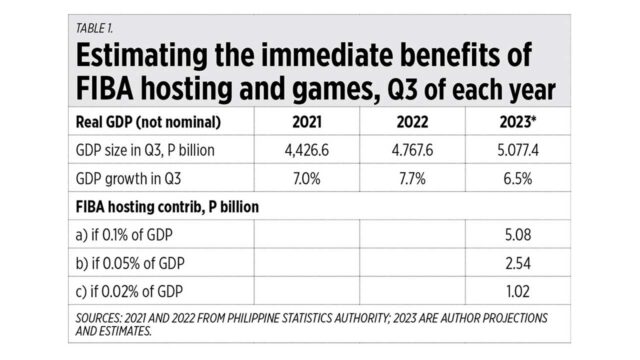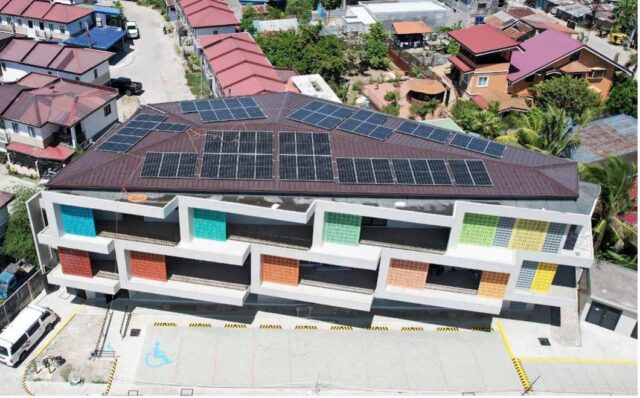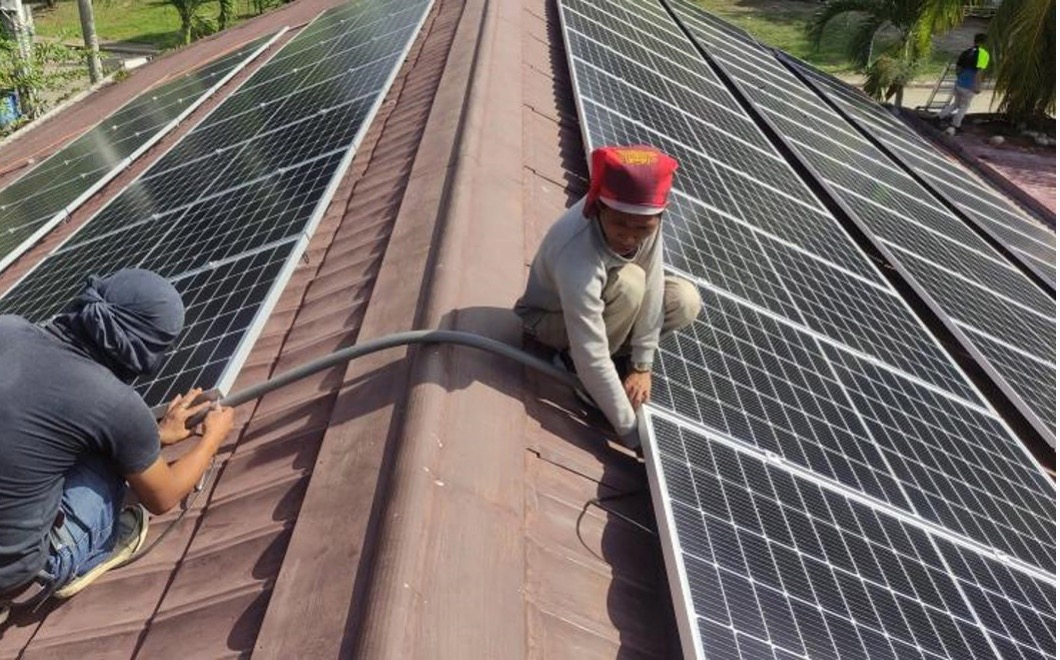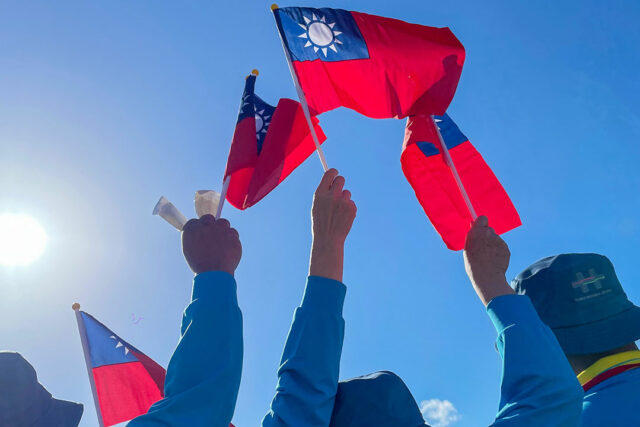Last week, two important global events concluded successfully. One was the final games of the Fédération Internationale de Basketball Amateur (FIBA) World Cup, last Sunday, Sept. 10. The second was the Open Government Partnership (OGP) Global Summit in Estonia last Sept. 7.
FIBA
The Philippines hosted some of the FIBA games, which were held from Aug. 25 to Sept. 10.
Some 80 country-teams went through qualifying games to join the top 32 teams that would play in the FIBA World Cup 2023. Of the 32 teams that went to Asia to play in the elimination rounds, eight each were hosted by Japan and Indonesia, and 16 by the Philippines. The 16 teams that survived the elimination round held their games in the Philippines.
I watched the opening games between Angola and Italy, then the Dominican Republic vs. Gilas Pilipinas on Aug. 25 at the Philippine Arena in Bulacan. My daughter Bien Mary and two friends, Luis and Simon, Filipino-German boys who live in Bavaria and who were on vacation here, joined me.
I also watched the semi-final games on Sept. 8 at the Mall of Asia (MOA) Arena: Serbia vs. Canada, then Germany vs. The USA. My two daughters, Bien Mary and Elle Marie, joined me for one game apiece. Then I watched the final game — Germany vs. Serbia — on Sept. 10, with my wife, Ella.
Over the past two weeks, the Philippines had been on the sports pages of many newspapers and sports channels around the world. One of the opening games was particularly electrifying for the local crowd because it was Gilas Pilipinas’ first game — more than 38,000 people watched it live. I wrote about it in my previous column, “BRICS energy and Philippine hosting of FIBA games” (Aug. 29).
This column is supposed to be about economic analysis and not sports analysis, so I will discuss the economics of the country hosting FIBA, led by the Samahang Basketbol ng Pilipinas (SBP), with the support by two government agencies, the Philippine Sports Commission and Philippine Olympic Committee.
IMMEDIATE, SHORT-TERM BENEFITS OF HOSTING FIBA
Here are the main beneficiaries of hosting FIBA: private sector economic players.
The first beneficiaries were the three arenas or stadiums where the games were played — Philippine Arena in Bulacan, the MOA Arena in Pasay City, and the Araneta Coliseum in Quezon City. Ticket prices were high, and attendance was high only during the opening games, the semi-finals, and the finals.
The next beneficiaries were the hotels, malls, restaurants and bars near the game venues. These were around MOA itself, the PICC area and Roxas Blvd., Pasay, Makati, Ortigas, and Quezon City.
Then there were the airlines, and the bus and van companies that transported the players, officials, staff, and security people, and companies that provided their food and other logistical needs.
Also benefiting were the telecom companies, and internet and mobile data providers.
Finally, the energy and electricity companies that provided 24/7 power needs of the hotels, malls, arena, etc. did well too.
Just assuming that around 20,000 balikbayans and foreigners spent $200/day for two weeks, that is $4 million or P280 million added to the local economy. The locals in the five business sectors mentioned above who earned more during the competition would also spend their earnings elsewhere — this is called the “multiplier effect” of higher or rising income.
We will now try to quantify the economic contribution of hosting the FIBA. Here I make two assumptions: First, a 6.5% GDP growth in the third quarter (Q3) of 2023, mainly coming from household and private spending (foreigners and locals), the rise in government infrastructure spending, and net exports of goods and services (especially tourism). Second, a sensitivity analysis of the contribution of FIBA hosting, including the multiplier effect. A 0.1% contribution to the GDP from FIBA hosting would have added some P5.1 billion in Q3 alone; a lower 0.05% contribution would give the domestic economy some P2.5 billion (see Table 1).

MEDIUM-, LONG-TERM BENEFITS OF FIBA HOSTING
The medium- and long-term benefits of hosting this important international sports event will be felt in the coming quarters and years. This is mainly through the increase in tourism, trade and investments in the country as more people abroad would have seen the games, the arenas, the big city, the people, the big population of always smiling and peaceful non-rioting people.
The country, the Philippine economy, owes the SBP a lot for its leadership in hosting the FIBA World Cup. In particular, SBP President Al Panlilio, and SBP Chairman Emeritus and member of FIBA Central Board, Manuel V. Pangilinan or Mr. MVP. Thanks much, sirs.
Thank you, FIBA leaders, and all the foreign teams that came here for the games. It was hugely entertaining to simply see so many seven-footers, 6’ 11” tall players, and “small” but very fast players like Germany’s 6’ 1” dribbler-shooter Dennis Schroeder, who was the FIBA 2023’s most valuable player (another MVP).
And, of course, thank you Gilas Pilipinas for uniting the country. You did not make it to the quarterfinals, but you made us go wild, screaming every time you scored or blocked an opponent’s shot.
I like this observation by Joe Zaldariaga in his column last month, “Sports: A game changer for the economy” (Philippine Star, Aug. 10). He wrote: “Just as success on the court demands strategic planning, agility, and teamwork, the same attributes fuel a nation’s progress in the business arena. There is reason to believe that a positive correlation exists between sporting achievements and a conducive business environment. President Marcos’ drive to attract foreign investors finds resonance in the FIBA World Cup’s potential to highlight the nation’s capacity to host world-class events — a beacon of business-friendliness.”
OGP GLOBAL SUMMIT IN ESTONIA
Department of Budget and Management (DBM) Secretary Amenah Pangandaman led the Philippine delegation to the OGP Global Summit, which was held on Sept. 5-7 in Estonia.
“Open Government” is broadly defined as one with more transparency, accountability, citizen participation, and technology and innovation by governments. As an economic researcher and writer, I believe there is more transparency now in economic and fiscal data than in the past — budget, taxes, borrowings, GDP, inflation, trade, investments, etc.
Secretary Pangandaman correctly stated in her opening address to the Summit that equipping citizens with adequate knowledge on the National Budget also means enabling them to meaningfully engage in various phases of the budget cycle and at different levels of government.
But I must add that the lockdown dictatorship of 2020 and 2021 had not resulted in humility among many officials, especially in the Health, Defense, and Interior/Police departments, and the local governments. Those officials engineered a draconian economic and political dictatorship that resulted in a huge annual budget deficit, huge annual borrowings, and more citizen dependence on government aid and subsidies.
Open Government should lead us to question and disobey the non-expert “experts” that the lockdown implementers have tapped and imposed on the public. We need more economic freedom, not restrictions on freedom. We need more sustained growth, not deep economic contraction.
Bienvenido S. Oplas, Jr. is the president of Bienvenido S. Oplas, Jr. Research Consultancy Services, and Minimal Government Thinkers.
minimalgovernment@gmail.com






















